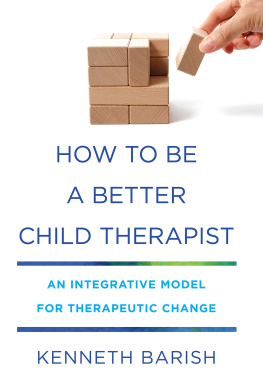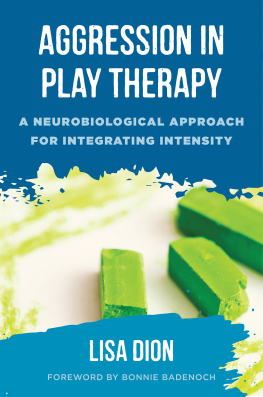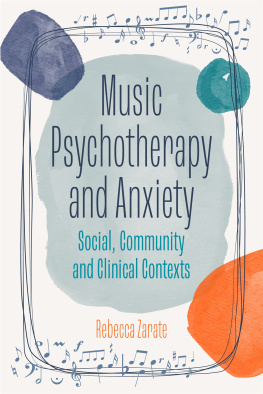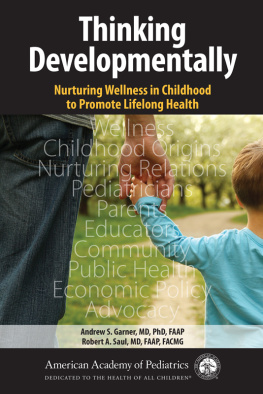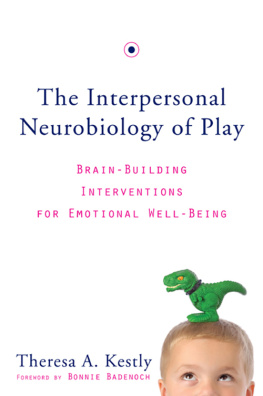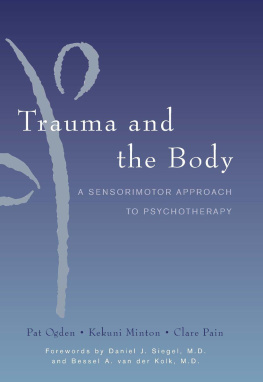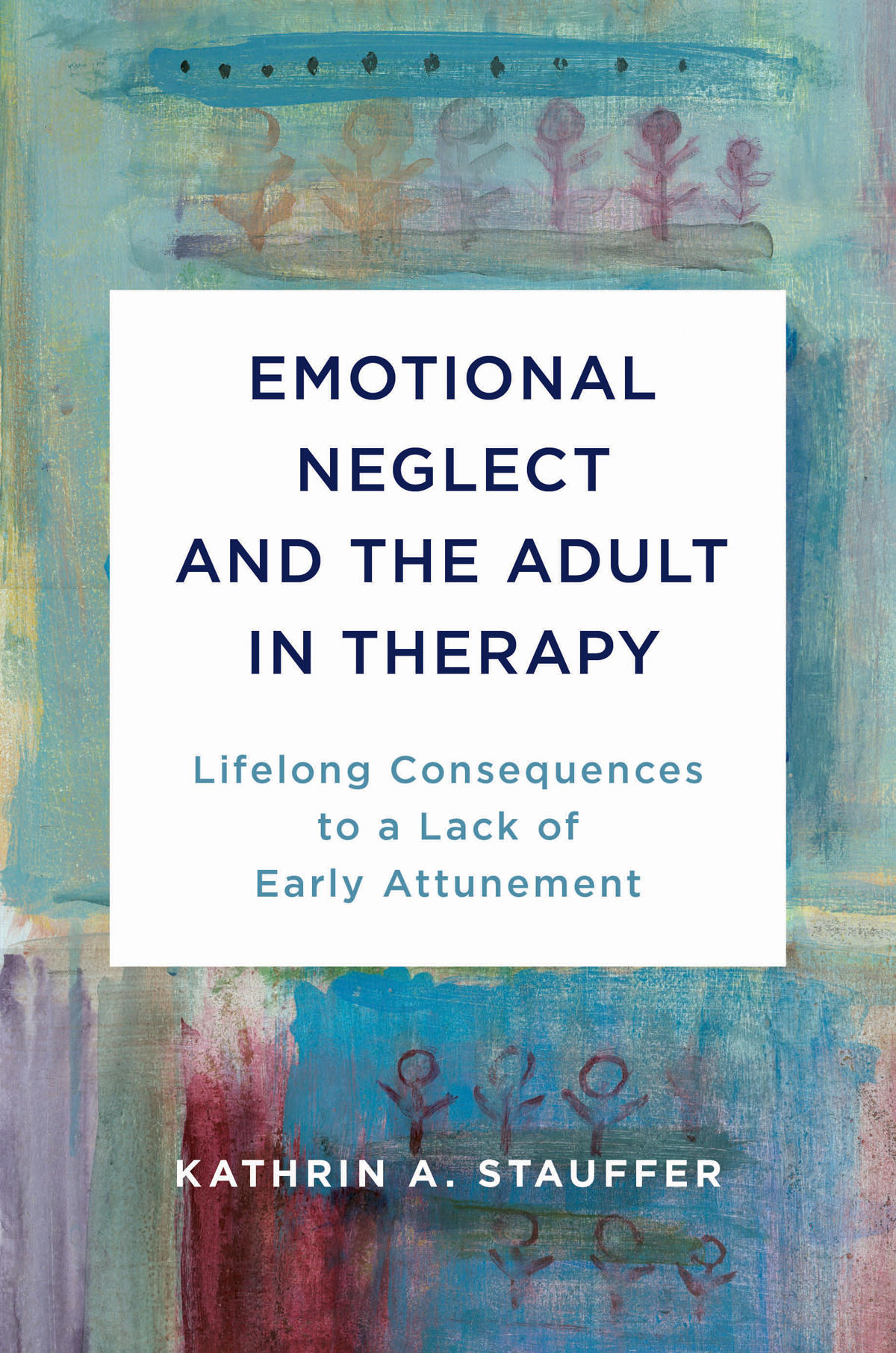Contents
Guide
Page List
Advance Praise
Kathrin Stauffer, a relational psychotherapist, appreciates that a human body is born equipped to share affections, often without words, in proud and joyful activity with companions. We are not to be left in loneliness, struggling with sad worries or guilt of a Self-out-of-relations. She describes work to support four adults, each experiencing anxiety and shame after a childhood of neglect. This is a lesson in ways to share recovery of healthy pride in systems of companionship, a therapy that is interpersonal, relational, and dyadic. Following advances in the psychology of infancy in the 1960s, the last two decades have brought evidence of human sympathy in relations, from the neuroscience of affections, from proof that consciousness arises in prospective control of form and power in movements, and from evidence that the brain is built for intersubjective sharing of purposes and emotions in expressive activity.
Colwyn Trevarthen , Ph.D., FRSE, Professor (Emeritus) of Child Psychology and Psychobiology, School of Philosophy, Psychology and Language Sciences, The University of Edinburgh
Kathrin Stauffer provides intelligent, accessible theory along with common-sense interventions to ease frustrations that too often result when attempting work with clients who have been emotionally neglected as children. Carefully chosen, poignant case examples throughout the book illustrate the depth and breadth of these issues. At the core, Stauffers dedication to her clients shines through and is translated into a book offering the knowledge, insight, sensitivity, and compassion necessary to help these heretofore lost-in-the-cracks clients.
Babette Rothschild , author of The Body Remembers and Revolutionizing Trauma Treatment
EMOTIONAL NEGLECT
AND THE ADULT IN THERAPY
Lifelong Consequences
to a Lack of Early Attunement
KATHRIN A. STAUFFER

A Norton Professional Book
Note to Readers: Standards of clinical practice and protocol change over time, and no technique or recommendation is guaranteed to be safe or effective in all circumstances. This volume is intended as a general information resource for professionals practicing in the field of psychotherapy and mental health; it is not a substitute for appropriate training, peer review, and/or clinical supervision. Neither the publisher nor the author(s) can guarantee the complete accuracy, efficacy, or appropriateness of any particular recommendation in every respect. As of press time, the URLs displayed in this book link or refer to existing sites. The publisher and author are not responsible for any content that appears on third-party websites.
Copyright 2021 by Kathrin A. Stauffer
All rights reserved
First Edition
For information about permission to reproduce selections from this book, write to Permissions, W. W. Norton & Company, Inc., 500 Fifth Avenue, New York, NY 10110
For information about special discounts for bulk purchases, please contact W. W. Norton Special Sales at specialsales@wwnorton.com or 800-233-4830
Cover design: Sally Rinehart
Jacket art: dimapf / Getty Images
Production manager: Katelyn MacKenzie
Library of Congress Cataloging-in-Publication Data is available
ISBN: 978-0-393-71441-8
ISBN: 978-0-393-71442-5 (ebk.)
W. W. Norton & Company, Inc., 500 Fifth Avenue, New York, N.Y. 10110
www.wwnorton.com
W. W. Norton & Company Ltd., 15 Carlisle Street, London W1D 3BS
For my father, the original ignored child.
Contents
CHAPTER 1
The Experience of Being an Ignored Child
CHAPTER 2
Possible Scenarios of Emotional Neglect
CHAPTER 3
Psychotherapeutic Theories About Ignored Children
CHAPTER 4
Neuroscientific Contributions Toward Understanding Ignored Children
CHAPTER 5
General Principles for Psychotherapy with Adults Who Were Ignored Children
CHAPTER 6
Specific Psychotherapeutic Interventions
A client presents for psychotherapy with anxiety and stress. They give an impression of struggling with life and finding everything hard work, without having much idea why this is so. They will be very polite, rather shy, and come across as a bit split off from their feelings.
It will be hard for the therapist to get a clear history from this client, who will say things like, Nothing bad has ever happened to me, or Everything was fine, and I shouldnt be having problems really. This absence of a narrative to account for their difficulties will be noticeable.
The client will be motivated to work hard in psychotherapy, but typically will be rather lost as to how to do this. They may need quite a lot of direction from the therapist. If the therapist does not give such direction, the therapeutic process will soon feel as if it has run aground and got stuck. The therapist may in that case begin to feel that the client does not really want to get better, and the therapist may give up on them. If the therapist does give direction, the client may follow it with great relief; or they may argue that it is impossible for them to do so. The therapist will probably experience the client as avoidant, defended, lacking spontaneous aliveness, and generally as a person who suppresses their inner life.
Typically this client will be anxious, although the anxiety may not be very noticeable, rather as if the client were at pains to hide their anxiety from others. It may emerge in the course of several sessions just how all-pervasive the anxious feelings are. It will become apparent that the client has poor affect-regulation skills and is split off from their body, and through this from their deeper vitality.
The client will have a tendency to ruminate and worry, especially about their health. They may not have many interpersonal resources and may suffer from social anxiety, shyness, or awkwardness in the company of others, including the therapist. To the discerning therapist it will soon dawn that the client suffers from crippling shame, but it may be rather nebulous what this shame is about, other than not functioning like other people.
Typically, such a client will strongly resist therapeutic change. They may give an impression of having no hope of improvement, or of being too afraid of change, or of not wanting to get better. The therapist may experience this as passive-aggressive behavior or as a sabotaging attack on the therapy. It will take deeply compassionate insight for the therapist to realize that the client has so few resources that they cannot afford to risk losing any, and therefore change has to be negotiated in tiny steps and at a snails pace.
In the course of therapy, it will gradually emerge that this client suffers from early emotional neglect. I have come to call these clients ignored children, because their history is typically one of being ignored by their caregivers as infants or young children. They may not have been rejected or abused early in their lives; but they were not made to feel welcome, loved, and safe in the world either, and they didnt have their needs met or even seen. Instead they were taken for granted, overlooked, treated like adults from a very young age, or used by their caregivers to help, without receiving any positive attention in return.
What I call emotional neglect is specifically the experience in the first months and years of life up to age about six years of not feeling welcomed, not being seen as a separate person, and not having ones needs met or even perceived by caregivers. In the life of an emotionally neglected child, there is no adult caregiver who is reliably available when the child needs an adult. There is no caregiver to show the child that their presence gives the caregiver joy, no caregiver to look after the child and keep them safe, and no adult caregiver for the child to reach out to for help and support. Instead, ignored children are on their own and have to look after themselvesindeed, often they have to parent not only themselves but also their parents.


